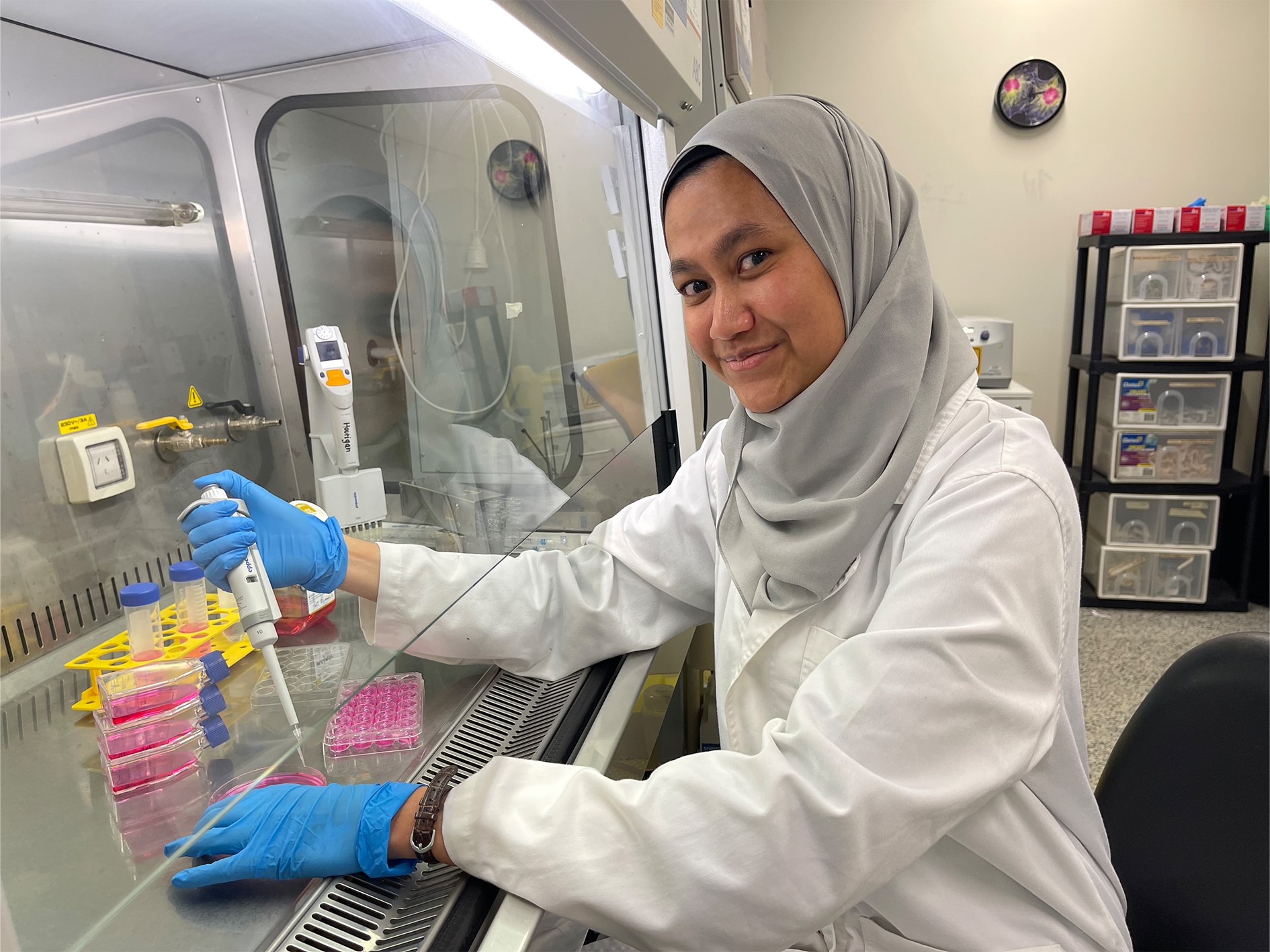In a study providing important new insights into the development of the female reproductive tract and fertility, engineers have revealed how the thickness of fluid surrounding the egg can impact the cellular structure of the fallopian tube and how well the egg or embryo travels along it.

Led by Melati Abdul Halim, a PhD candidate in the Department of Mechanical and Aerospace Engineering, the study highlights the potential for new treatments that could mimic or modify the natural stickiness of fluids in the reproductive system, offering hope for advancements in fertility therapies.
“Imagine the difference between walking through water versus thick mud. This is what it’s like for tiny cells in the female reproductive tract, where the stickiness of the fluid can vary,” Melati said.
“When the fluid is thicker, the extra resistance causes the cells to change their behaviour. Some cells start growing tiny hair-like structures called cilia, which help move things like eggs along the reproductive tract. The thicker the fluid, the more cilia these cells produce, and the more coordinated their movements become. This coordinated beating pattern can facilitate the formation of metachronal waves, essential for the transport of eggs and embryos.”
Corresponding and senior author, Dr Reza Nosrati said the findings suggest that the natural stickiness of fluid in our bodies could play a key role in processes like fertilisation.
“The study suggests that the elevated viscosity at certain stages of the menstrual cycle could be a natural mechanism to enhance the formation and coordination of cilia, thus facilitating fertilisation. This important aspect of natural fertilisation and the role of higher viscosity fluid in the reproductive tract may need more careful evaluation as part of infertility diagnosis and assisted reproduction practices,” Dr Nosrati said.
“It provides insights into how the viscosity (thickness, stickiness) of extracellular fluid influences the behaviour of epithelial cells lining the fallopian tubes and could be key to understanding and potentially treating fertility issues.”
DOI: https://doi.org/10.1038/s41467-024-51481-9
-ENDS-
MEDIA ENQUIRIES:
Courtney Karayannis, Media and Communications Manager
Monash University
T: +61 408 508 454 or [email protected]
Monash University Media | +613 9903 4840 | [email protected]
Visit Monash Lens for expert insights and commentary

